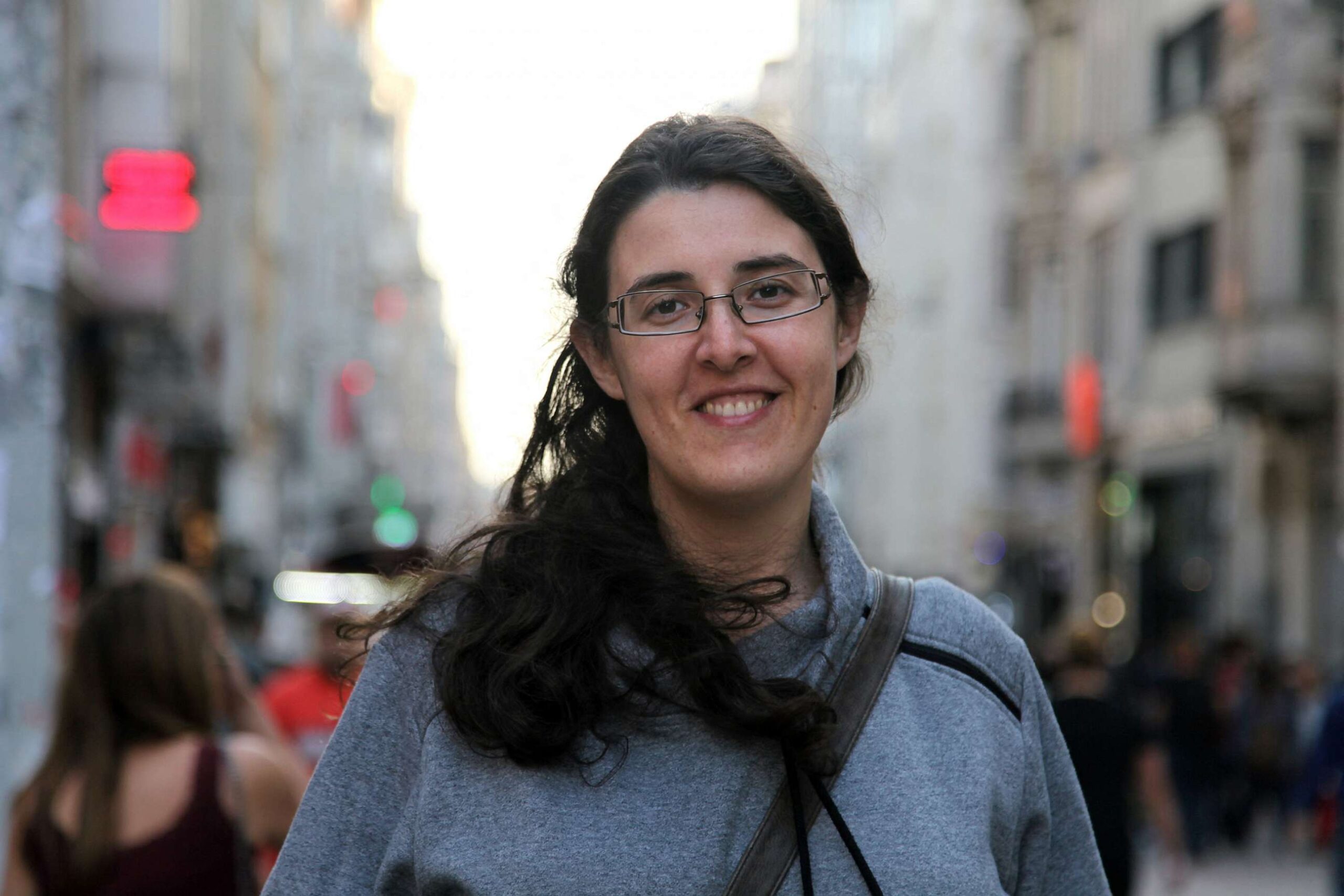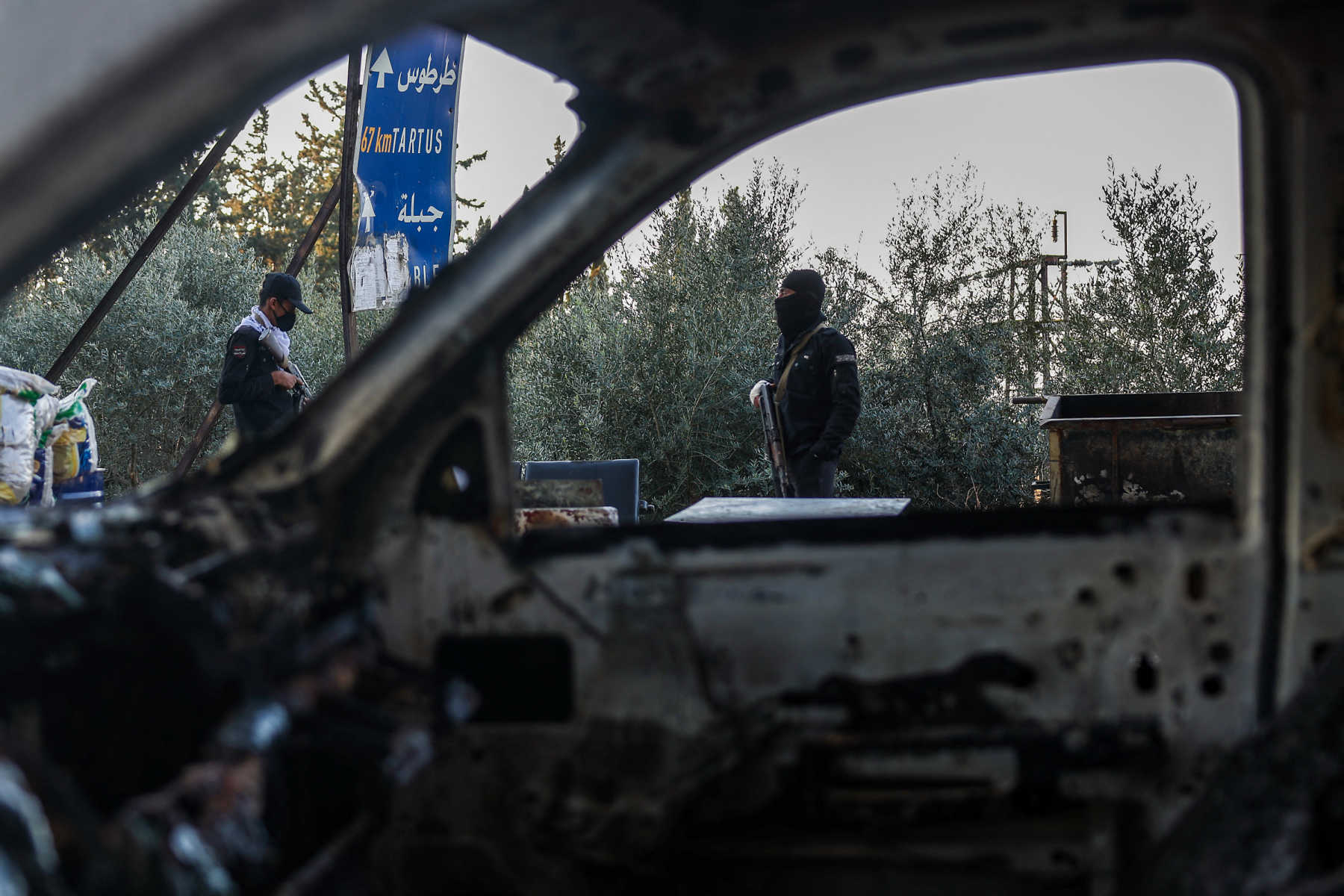Frederick Deknatel is the Executive Editor of Democracy in Exile, the DAWN journal.
How Russia's invasion of Ukraine reverberated across the Middle East and North Africa. The fate of Tunisia's democracy. Israel's new restrictions on the West Bank. Sisi's attempt to project a softer image for his regime. A diary from an Egyptian women's prison.
These are just a few of the most popular stories that Democracy in Exile published in 2022, from regional experts and exiles from the region, including contributors writing in Arabic. In essays, interviews, first-hand reporting and roundtables, they debated the biggest issues around human rights and democracy in the Arab world and beyond. They also offered fresh perspectives on major political developments in the region and challenged conventional wisdom and longstanding assumptions about U.S. foreign policy.
Here are our dozen most-read articles of 2022, based on pageviews. They capture the wide range of DAWN's journal and its mission to magnify the voices of political exiles and activists, giving them an equal platform to outside experts and observers. Thanks for reading Democracy in Exile—and look out for much more in the year ahead.
*
1. 'Those Are Alleged Threats': Noam Chomsky on China, Iran and a Nuclear Middle East
Interview by Omid Memarian
"The so-called Iran threat could be dealt with by establishing a nuclear-weapons-free zone in the Middle East. Everyone is in favor of that, including Iran. The U.S. blocks it, because they would have to open up Israeli nuclear weapons to inspection, and the U.S. won't permit that."
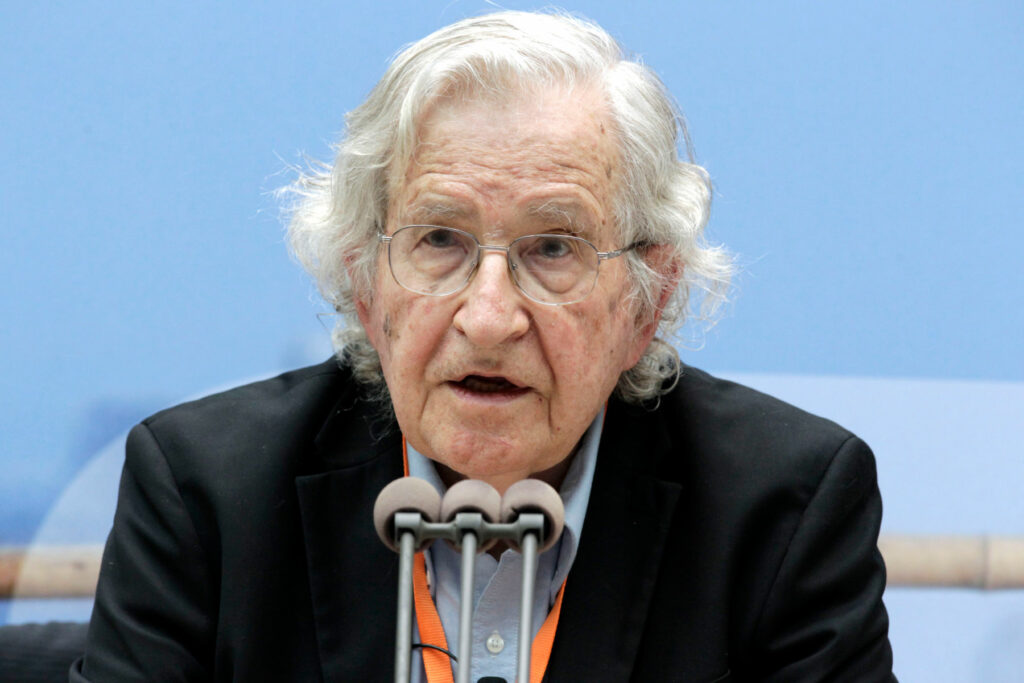
2. Russia's War in Ukraine Will Relieve the Pressure on Algeria's Leaders—For Now
By Andrew Farrand
"The authorities in Algiers may believe that Europe's increasing dependence on Algerian oil and gas will reduce external pressure to both diversify Algeria's economy and respect human rights. But the Ukraine crisis has already prompted major policy shifts in Europe and will likely trigger more still."
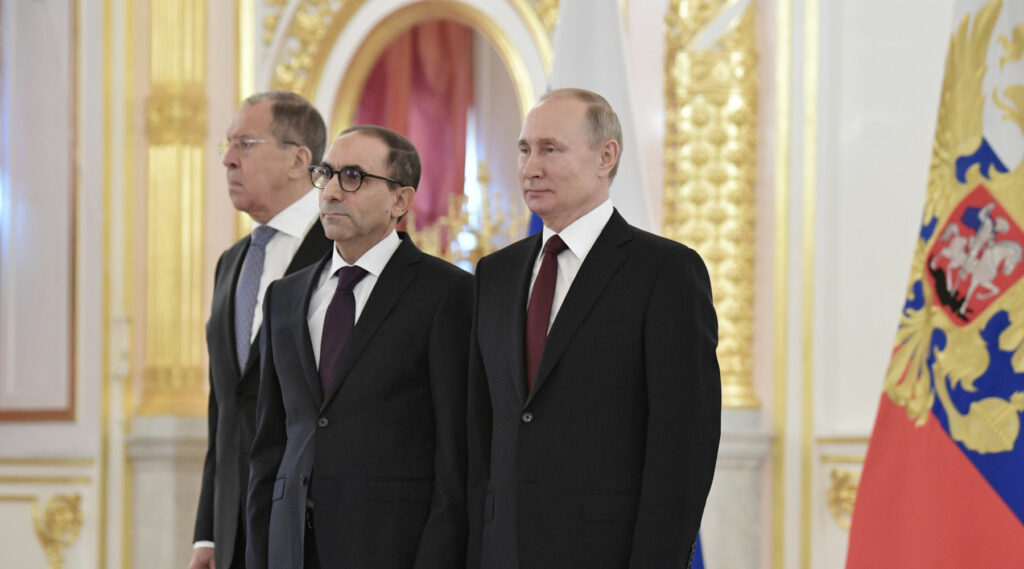
3. Why Ukraine Is a Syrian Cause
By Yassin al-Haj Saleh
"A Russian defeat would be a victory not just for Ukraine, but the world. It would also weaken Assad's barbaric and traitorous regime, along with the growing authoritarian tendencies in the whole Middle East and indeed the world. And while a defeat of our common enemy, Putin, will not necessarily be a victory for us Syrians, a victory for Putinism will be an even bigger defeat for us, as it will diminish our already meager opportunities to retrieve our own country."
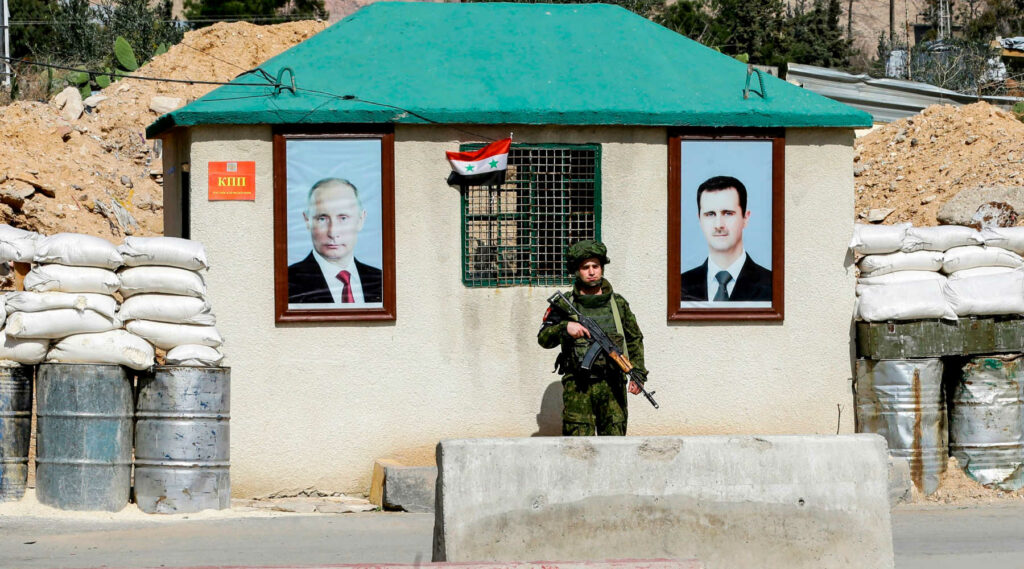
4. 'Without Them, I Would Not Have Survived.' Diary From an Egyptian Women's Prison
By Solafa Magdy
"A unique friendship brought us together, in a way that happens only in novels. This happened in a cell where we met because of the decision of one jailer and one accusation, without our jailer knowing that he had done us a favor. The journey of searching for each other over the past 10 years finally ended behind a locked door, guards and walls."
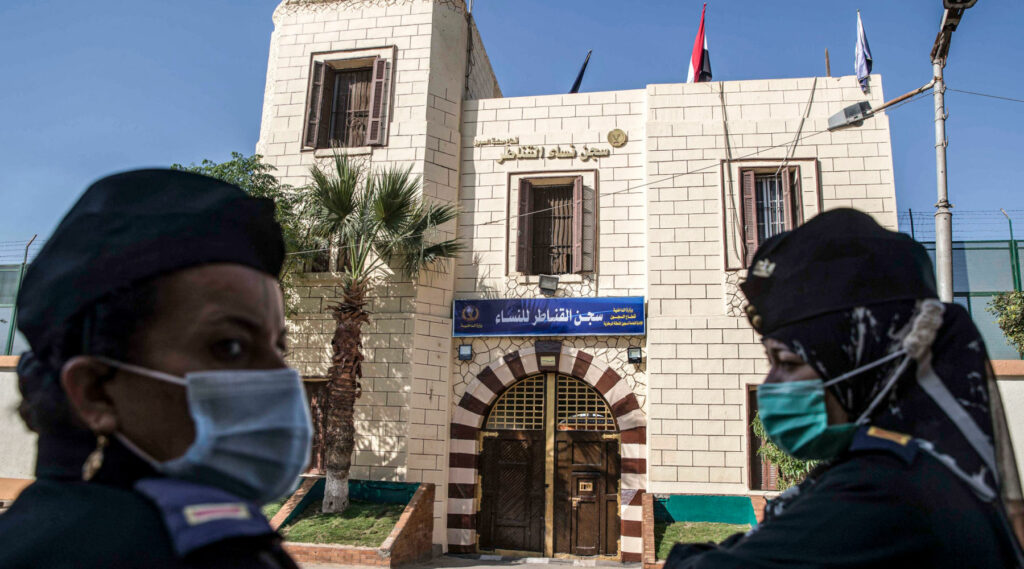
5. Israel's Restrictions on Foreigners Traveling to the West Bank Just Got 92 Pages Worse
Interview by Michael Omer-Man with Leora Bechor
"The new policy affects broad areas of Palestinian society and basically creates a situation in which Israel reaches into what should be independent decisions of the Palestinian authorities. For example, the policy creates restrictions on the number of foreign academics who can teach in Palestinian universities. It profoundly restricts the ability of foreign volunteers to volunteer in critical Palestinian institutions, including in areas of public health and welfare and education."
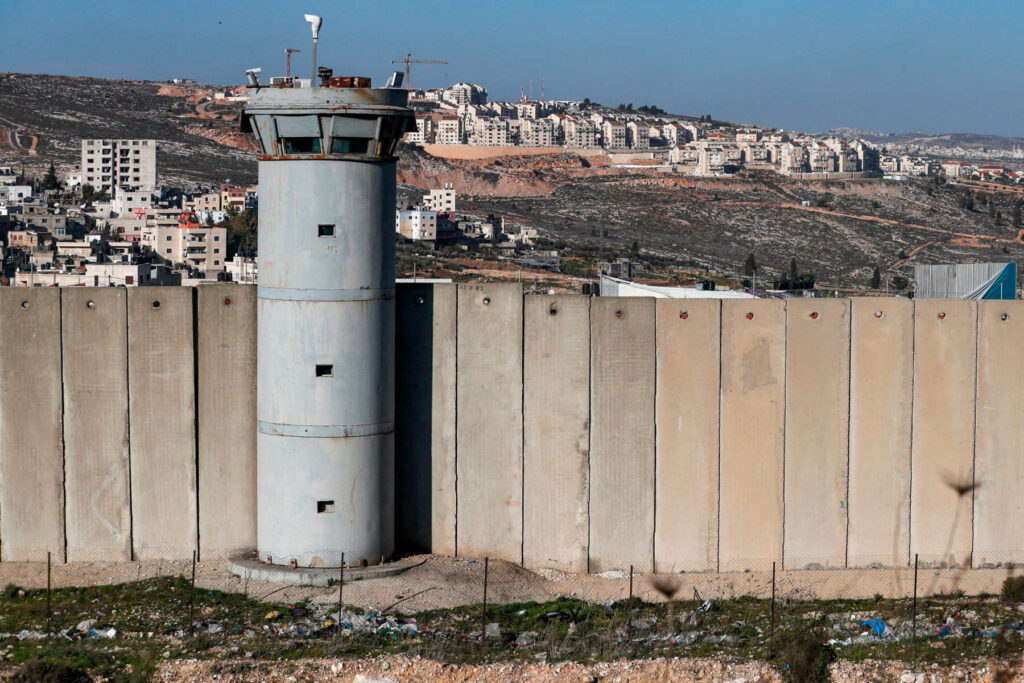
6. Can a Fragmented Opposition Save Tunisia's Democracy From Saied?
By Monica Marks
"Though Saied faces pockets of ongoing resistance from cohorts of the country's political parties and its increasingly beleaguered judiciary, no person or coalition in Tunisia has yet emerged to dislodge Saied from his self-appointed role as almighty decider-in-chief. Tunisia's democracy, unique in the Arab world, effectively ceased to exist on July 25, replaced by rule through unilateral presidential decrees—a form of government with which Tunisian history is all too familiar."
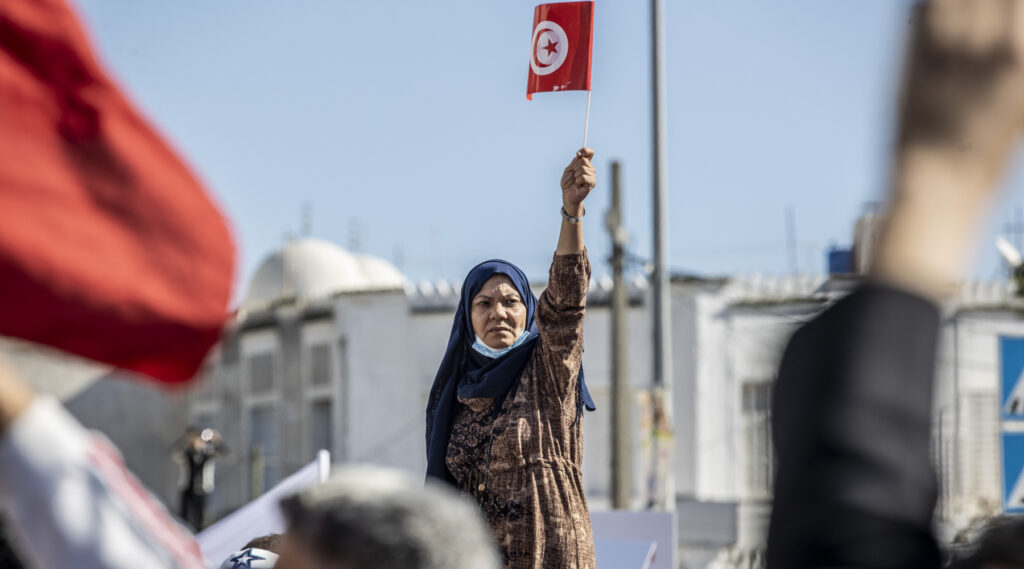
7. The 'Nightmare' of Being Gay in Tunisia
By Dario Sabaghi
"In a country and society with this level of discrimination, NGOs play a vital role and have become a lifeline for survival for LGBTQ people. Following the Tunisian revolution, thousands of NGOs popped up in the country, including many that provide services to the LGBTQ community, such as legal aid, financial assistance, and psychological and health support."
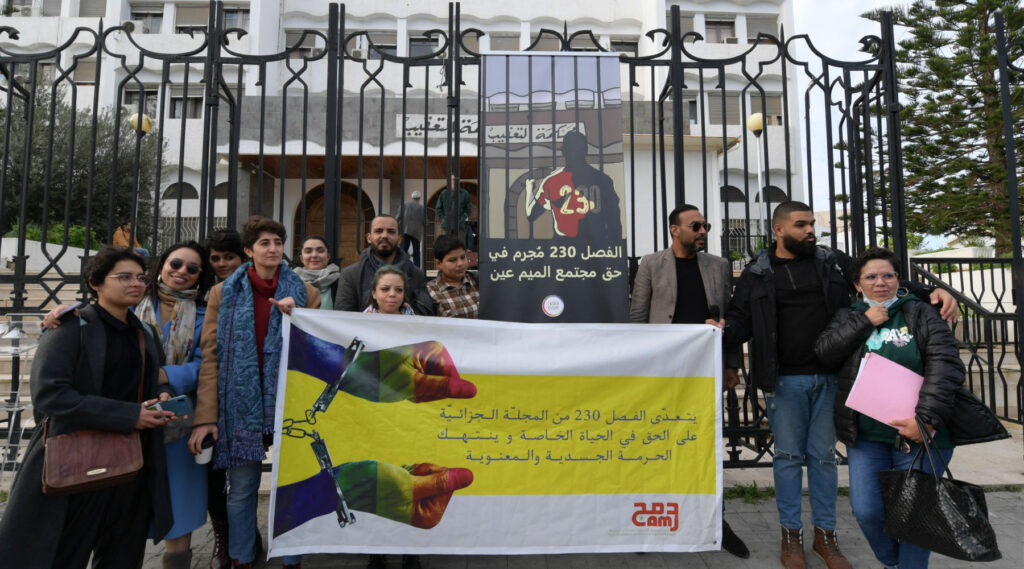
8. The UAE's Expansionist Agenda in Yemen Is Playing Out on Socotra
By Giorgio Cafiero
"Yemeni factions receive training, equipment and money from Abu Dhabi. These militias are the UAE's Yemeni proxies, proof that it has not at all abandoned Yemen or withdrawn from the war. The Emiratis are using proxy warfare and various forms of diplomacy to advance their interests in southern Yemen and on Socotra, where the presence of Southern Transitional Council forces underscores this reality."
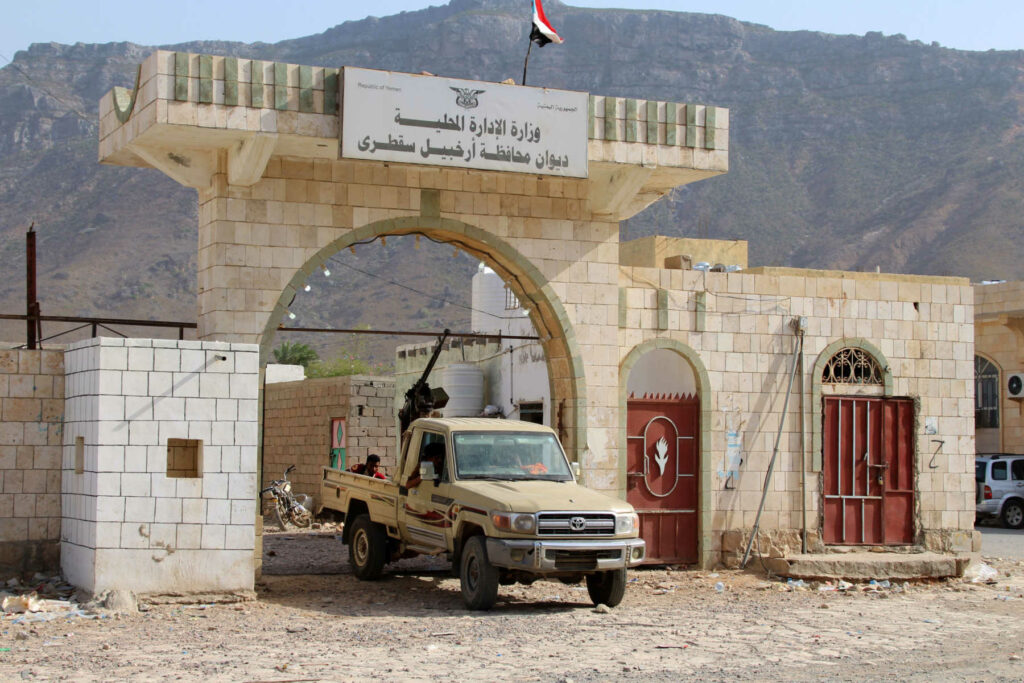
9. What Do Iran's Protests Mean for the Arab World? A Democracy in Exile Roundtable
With Marsin Alshamary, Rami G. Khouri, Seifeddine Ferjani, Kristin Diwan, Dalia Fahmy, Hayat Alvi, Barbara Slavin, Jamsheed K. Choksy, Carol E. B. Choksy, Assal Rad, Nader Hashemi, Jon Hoffman, and Negar Mortazavi
"As post-Arab Spring states look at the continued popular mobilization in Iran, they are also witnessing a return of protesters to their own squares. And while the outcomes remain unknown, what is becoming clear is that despite the increased repression throughout the region, there are growing pockets of women and youth that remain undeterred."
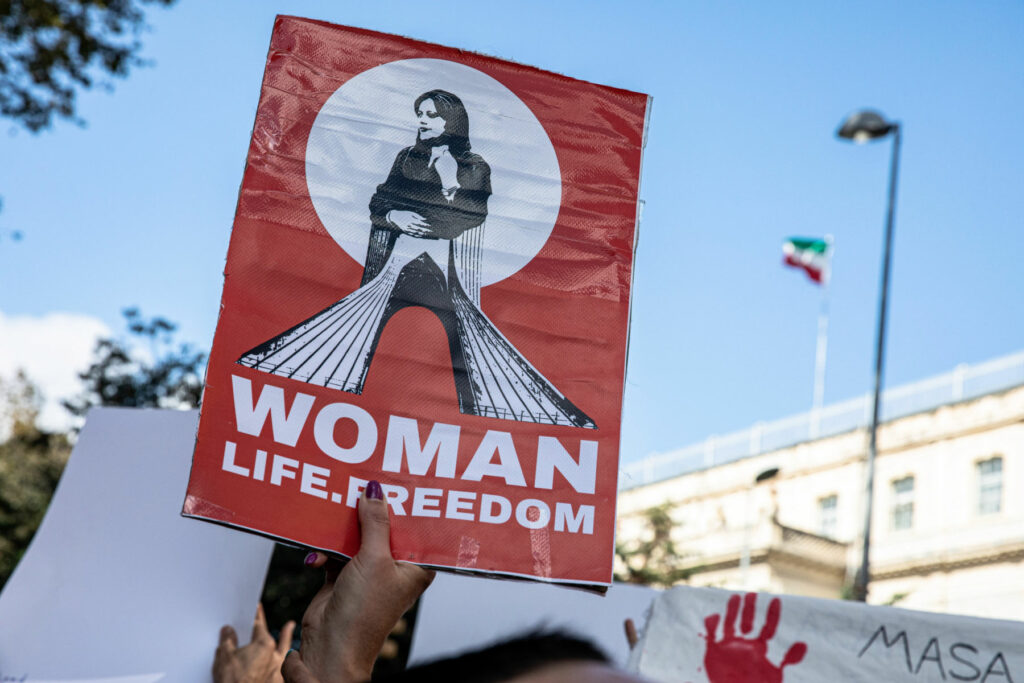
10. What Tunisia Has Become Under Kais Saied
By Seifeddine Ferjani
"Saied is increasing his brutality, preferring the acquisition of more power over stability, splitting Tunisia into 'traitors' and his followers. There have yet to be any costs imposed on him and his inner circle of ministers and family members, in the form of sanctions or international isolation, let alone just naming and shaming them while the rule of law in Tunisia is reduced to whether or not you're in the president's good favor."
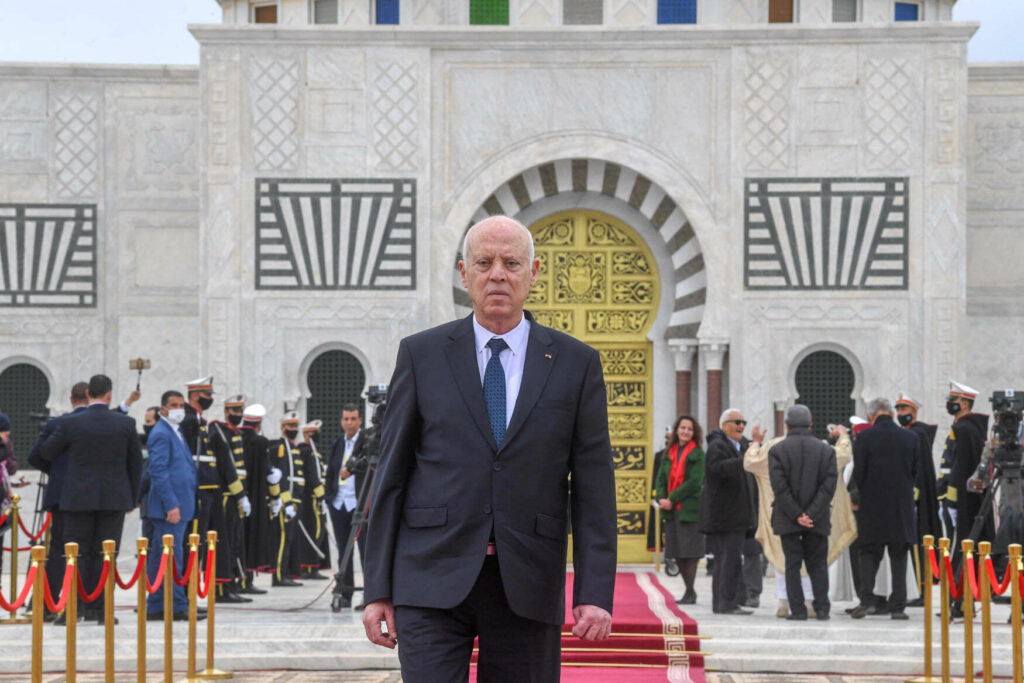
11. The Ukraine War's Impacts in the Middle East: A Democracy in Exile Roundtable
With Thanassis Cambanis, Mona Yacoubian, Tarek Megerisi, Dalia Fahmy, John Hursh, Annelle Sheline, Michael Omer-Man, Karen E. Young, Juan Cole, Jamsheed K. Choksy, Carol E. B. Choksy, John Tirman, Khalil al-Anani, Simon Mabon, and Nader Hashemi
"The Russian invasion of Ukraine will catalyze further violent conflict and bad-faith diplomacy in a fragile Middle East and North Africa. The immediate shocks will be enormous enough: disrupted food supplies, spiking energy prices and a sudden diplomatic realignment around pro-Russia and pro-Ukraine blocs. Over the long term, Russia's belligerence will further open the window for renegade statecraft."
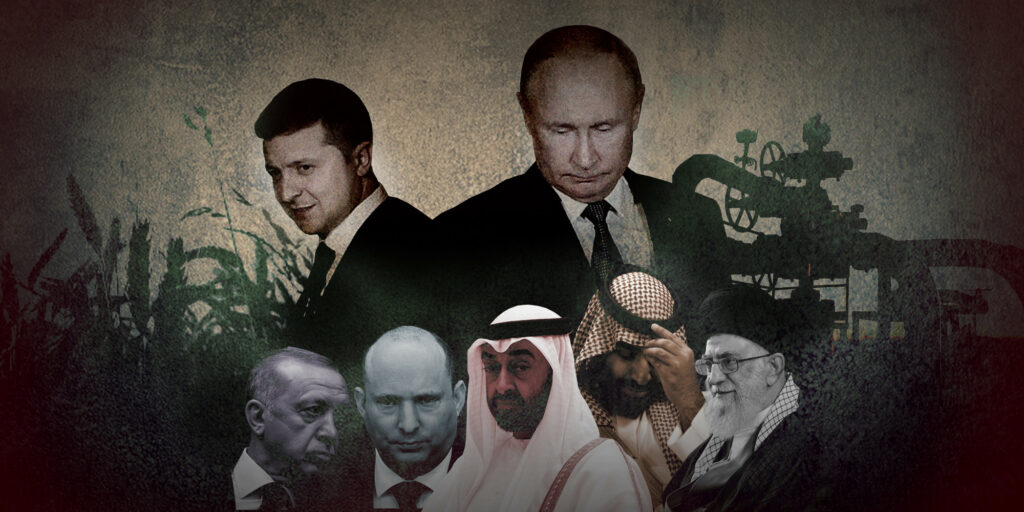
12. Sisi Tries to Rebrand in the Face of Dissatisfaction in Egypt—and Within His Regime
By Robert Springborg
"These changes in presidential behavior and rhetoric presumably are not just stylistic but reflect more profound calculations for Sisi. Egypt is under huge economic pressure, including staggering amounts of debt because of Sisi's building sprees, which of course has political reverberations."
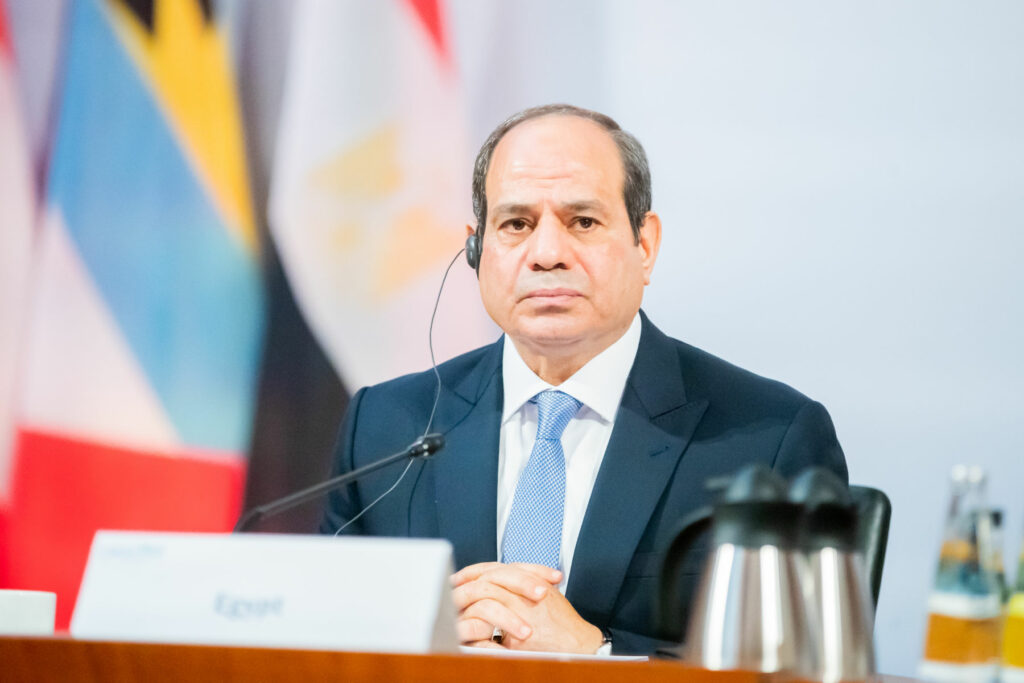

















![Security forces loyal to the interim Syrian government stand guard at a checkpoint previously held by supporters of deposed president Bashar al-Assad, in the town of Hmeimim, in the coastal province of Latakia, on March 11, 2025. Syria's new authorities announced on March 10, the end of an operation against loyalists of deposed president Bashar al-Assad, after a war monitor reported more than 1,000 civilians killed in the worst violence since his overthrow. The Syrian Observatory for Human Rights said the overwhelming majority of the 1,068 civilians killed since March 6, were members of the Alawite minority who were executed by the security forces or allied groups. (Photo by OMAR HAJ KADOUR / AFP) / “The erroneous mention[s] appearing in the metadata of this photo by OMAR HAJ KADOUR has been modified in AFP systems in the following manner: [Hmeimim] instead of [Ayn Shiqaq]. Please immediately remove the erroneous mention[s] from all your online services and delete it (them) from your servers. If you have been authorized by AFP to distribute it (them) to third parties, please ensure that the same actions are carried out by them. Failure to promptly comply with these instructions will entail liability on your part for any continued or post notification usage. Therefore we thank you very much for all your attention and prompt action. We are sorry for the inconvenience this notification may cause and remain at your disposal for any further information you may require.”](https://dawnmena.org/wp-content/uploads/2025/04/syria-22039885951-350x250.jpg)











![Security forces loyal to the interim Syrian government stand guard at a checkpoint previously held by supporters of deposed president Bashar al-Assad, in the town of Hmeimim, in the coastal province of Latakia, on March 11, 2025. Syria's new authorities announced on March 10, the end of an operation against loyalists of deposed president Bashar al-Assad, after a war monitor reported more than 1,000 civilians killed in the worst violence since his overthrow. The Syrian Observatory for Human Rights said the overwhelming majority of the 1,068 civilians killed since March 6, were members of the Alawite minority who were executed by the security forces or allied groups. (Photo by OMAR HAJ KADOUR / AFP) / “The erroneous mention[s] appearing in the metadata of this photo by OMAR HAJ KADOUR has been modified in AFP systems in the following manner: [Hmeimim] instead of [Ayn Shiqaq]. Please immediately remove the erroneous mention[s] from all your online services and delete it (them) from your servers. If you have been authorized by AFP to distribute it (them) to third parties, please ensure that the same actions are carried out by them. Failure to promptly comply with these instructions will entail liability on your part for any continued or post notification usage. Therefore we thank you very much for all your attention and prompt action. We are sorry for the inconvenience this notification may cause and remain at your disposal for any further information you may require.”](https://dawnmena.org/wp-content/uploads/2025/04/syria-22039885951-360x180.jpg)





